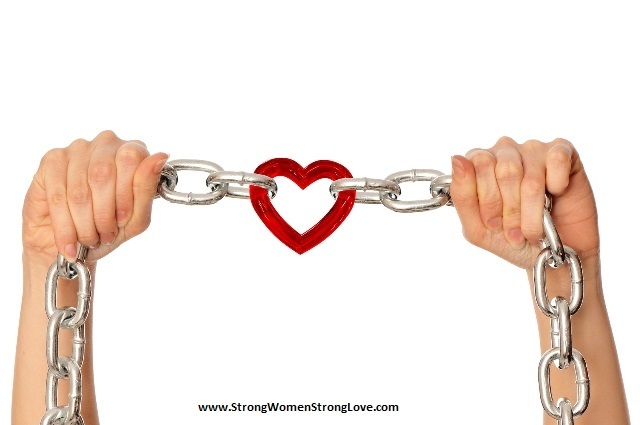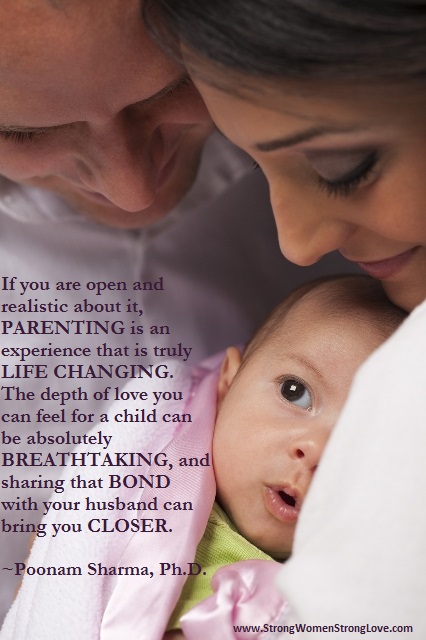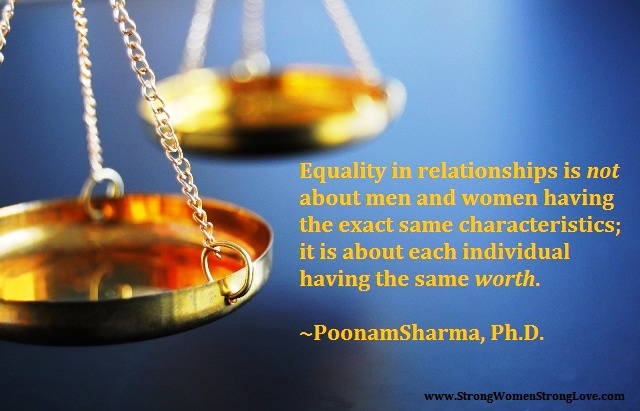by Strong Women Strong Love | Mar 17, 2014 | Persistent Pressures |
 Are you stressed out? You have plenty of company.
Are you stressed out? You have plenty of company.
Although we’re wired for connection, stability and operating within certain limits, in recent decades, the pressure to ignore this biological reality has increased. As a result, stress is running rampant many areas of our lives, even our marriages. Researchers Dr. Lisa Neff and Dr. Benjamin Karney warn that relationships exposed to excessive stress have a higher chance of failing, so it’s important to get a handle on stress.
Here are some signs of stress in your marriage:
- Every little thing sets you off. Neff and Karney’s research found that chronically-stressed couples tend to be much more reactive to the normal ups and downs of their relationships. This finding was even stronger for women. What this means is that you may, for example, respond a little too defensively to the “tone” in your partner’s voice. And those dirty socks on the floor? They may just push you right over the edge!
- You’re focused on the negative. Studies show that under heavy stress, couples have trouble seeing the positives in their relationship and usually magnify anything negative that is happening. So, even though your husband stopped by the store to pick up a gallon of milk like you asked him to, all you can think of is that he got home late.
- You’re a control freak. When stressed, many of us get more rigid and judgmental. In a momentary desire to feel some sense of control, we may lose touch with the spirit of kindness and flexibility that nourishes a marriage.
- You feel bad physically. Does any of this sound familiar? You pick up every bug going around. Your jaws or shoulders are always clenched. You have a constant headache or churning stomach. You notice your heart racing. These are all ways that stress can manifest itself in our bodies. Health problems like these drain our energy, leaving us less to give to our marriages.
- You’re emotionally worn down. Chronic stress can also break down your emotional health, sometimes causing feelings of anxiety, depression or constant agitation. If you are struggling emotionally, it’s hard to be a supportive, compassionate partner in your marriage.
- You don’t seem like yourself. Does it seem like your relationship used to be easier? Unfortunately, because of the way the brain works, even if you have excellent relationship and communication skills, it is very hard to draw on those skills when overwhelmed. Just like a drowning person, when you are super stressed, all you can think of is survival, not how you’re going to phrase something so it doesn’t hurt your husband’s feelings.
It’s important to be aware of the ways stress may be hurting your relationship. In our next blog, we’ll look at how to relieve this stress, and make your marriage healthier.
by Strong Women Strong Love | Jan 8, 2014 | Persistent Pressures, Understanding Men |

Men and women make assumptions about one another all the time. For example, you must have heard by now that men are:
- Not as emotional as women.
- Have a hard time staying faithful.
- Unable to take care of themselves, let alone the children.
Stereotypes are a mental shortcut, a way for the brain to efficiently process information without having to attend to all the pesky details. Unfortunately, the mind’s tendency to generalize in the name of efficiency can have a detrimental effect on a relationship.
Let’s examine a few stereotypes about men and how these ideas can affect a relationship:
1. Men are not as emotional as women.
Research shows that young boys are actually more emotionally expressive than girls until about first grade. In the early years, boys tend to smile, laugh, and cry more often than girls. After that, there is significant social pressure for them to “toughen up,” and they become less likely to show distress or sadness. By the time they enter a romantic relationship, they have often been well-trained to keep their emotions under wraps.
Feeling emotion and expressing emotion are two different things. For example, if you look at the studies of how men respond to an intense argument with their spouse, you will find that when men appear shut down, they are in fact experiencing intense stress that they are attempting to manage by distancing. They are masters of the Poker Face.
Typically, In response to the frustration of a husband who has withdrawn, many women intensify their pursuit. If you consider the possibility that your partner may actually be overwhelmed by emotion, rather than devoid of it, you would probably choose a different response.
2. Men have a hard time staying faithful.
There is a prevalent idea, even among some researchers, that men are biologically predisposed to seeking multiple partners. This mindset reinforces the idea that men “can’t help themselves” and are incapable of being mature, monogamous, responsible partners. In reality, men often desire a committed, emotionally rewarding relationship as much as women.
For both men and women, the capacity to remain faithful in a relationship is strongly linked to having emotional needs met, much more than it is linked to any biological drive to cheat. Ironically, assuming that your partner is hardwired to cheat can set off fear-based behavior, such as jealousy and constant monitoring, that may ultimately lead to what you fear most.
3. Men are unable to take care of themselves, let alone the children.
Read that one again and notice the disrespect inherent in this idea. This stereotype essentially lumps men and children together and reinforces the notion that men are helpless, useless creatures who will always need mothering.
Because of the different ways males and females continue to be socialized, there can indeed be significant differences in how well they are able to engage in domestic and childcare duties. The majority of women have much more practice in how to take care of the home and children than the men they marry. Because women are frequently judged on their caretaking skills, they face social pressure to be proficient in this area.
That being said, there are plenty of men around these days who are not only willing, but actually open, to being full partners at home. However, if they lack skill in the domestic realm, it is important they be allowed the time and space to develop these abilities in a safe, supportive atmosphere tolerant of the normal mistakes that are part of learning.
It is extremely important to separate biological leanings from social realities. In the same way that women are not biologically engineered to love washing dishes and wiping runny noses, men do not have a gene that prevents them from becoming domestically proficient.
So, check your assumptions about your spouse. Be curious about the social pressures he has faced as a man, and learn the details of his life. After all, both of you deserve to have a partner who relates to the real you, not an inaccurate stereotype that barely scratches the surface.
by Strong Women Strong Love | May 15, 2013 | In the News, Parenthood, Persistent Pressures, Understanding Men |
The next time you see a father out shopping with his kids, you might need to check your assumptions.
“I’ll get the, ‘Oh, look, it’s a dad! That’s so sweet!’ “says Jonathan Heisey-Grove, a stay-at-home father of two young boys in Alexandria, Va., who is pretty sure the other person assumes he’s just giving Mom a break for the day. In fact, he’s part of a growing number of fathers who are minding the kids full time while their wives support the family and who say societal expectations are not keeping up with their reality.
Read the rest of the story at:
http://www.npr.org/2013/05/15/180300236/stay-at-home-dads-breadwinner-moms-and-making-it-all-work
 Are you stressed out? You have plenty of company.
Are you stressed out? You have plenty of company.



